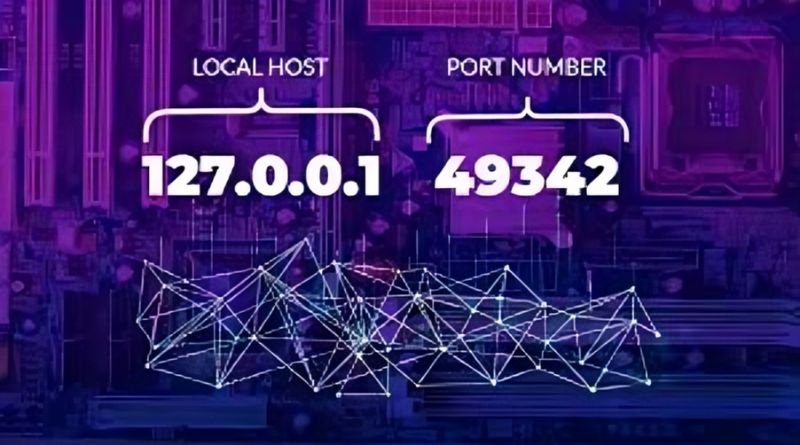In the world of networking, “127.0.0.1:49342” might seem like a string of technical jargon, but it actually holds significant meaning in the context of computer networks, specifically when dealing with localhost addresses and port numbers. Whether you’re a developer, a network enthusiast, or just curious, this article will break down what “127.0.0.1:49342” means and why it is important.
Table of Contents
What Does “127.0.0.1:49342” Represent?
1. 127.0.0.1: The Localhost Address
The IP address “127.0.0.1” is known as the localhost or loopback address. It is a special IP address that refers to your computer itself. In essence, “127.0.0.1” is used to establish a network connection to your own computer, bypassing the need for an actual network connection. This is commonly used for testing, debugging, and local development purposes.
- What Is the Loopback Address?
The loopback address is part of the IP standard, where the IP range “127.x.x.x” is reserved for this specific purpose. This means that any IP address within this range (like 127.0.0.1, 127.0.0.2, etc.) will always refer back to the local machine. - Why Use 127.0.0.1?
Using the localhost address allows programs and services on a computer to communicate with each other without requiring external network resources. For instance, web servers can be tested locally using “127.0.0.1” without needing to access the internet.
2. Port 49342: The Specific Service
The number “49342” in “127.0.0.1:49342” refers to a port number. In networking, ports are used to distinguish between different services and applications running on the same machine. A port is like a doorway for data to enter or leave the computer, with each port corresponding to a different service or application.
- What Is a Port Number?
A port number is a 16-bit integer that can range from 0 to 65535. Ports are divided into three categories: - Well-known ports (0-1023): Reserved for commonly used services like HTTP (port 80) and HTTPS (port 443).
- Registered ports (1024-49151): Used by software applications, including game servers, database servers, etc.
- Dynamic/Private ports (49152-65535): Typically used for ephemeral connections, which are temporary and randomly assigned by the operating system.
Port 49342 likely falls within the dynamic/private range and is used by a specific service or application on the computer. It’s not a standard, commonly known port like port 80 (HTTP) or port 443 (HTTPS), but rather a temporary port allocated for a particular service or test process running on your local machine.
- Why Does a Program Use Port 49342?
If you’re running a local server or a software application, it may use port 49342 as a random, available port for its operations. For instance, a development server or an application in debug mode may dynamically select this port number.
Common Uses of “127.0.0.1:49342”
- Web Development and Testing:
Developers often use the “127.0.0.1” address with a port like “49342” to test web applications or services locally before deploying them to a live environment. This allows them to ensure that everything works as expected without needing to connect to the internet. - Local Server Connections:
If you are running a web server or database server on your local machine, “127.0.0.1” would be used to connect to the server. The port number (e.g., 49342) indicates which specific service or instance you’re connecting to. - Debugging and Network Troubleshooting:
When diagnosing issues with software or networks, it’s common to test services on the localhost. In such cases, you may see ports like “49342” being used by diagnostic tools to send and receive data locally. - Application Services:
Some applications and services may use random or dynamic ports for internal communication. These ports are often not fixed and may vary each time the application runs.
FAQs About “127.0.0.1:49342”
1. What does the IP address 127.0.0.1 mean?
“127.0.0.1” is the localhost address, which points to your own computer. It allows you to connect to services running on the same machine, without going through an external network.
2. What is a port number, and why is 49342 used?
A port number is a unique identifier used by software applications to communicate over the network. Port 49342 is likely a dynamically assigned port for a particular service or application running on your local machine.
3. Why would I see 127.0.0.1:49342 in a web browser or application?
If you are developing or running an application locally, you might use the localhost address (127.0.0.1) along with a port number (such as 49342) to test and interact with the service. This is common in web development, server testing, and debugging.
4. Is 127.0.0.1:49342 secure to use?
Since 127.0.0.1 points to your own computer, it is considered a safe and secure connection. However, the security of the port depends on the service or application using it. Always ensure that any software running on your system is secure.
5. Can the port number 49342 be changed?
Yes, port numbers are typically configurable. Applications or services may be set to use a specific port, but they can be modified depending on the requirements of the system or application. If 49342 is used dynamically, the system may allocate a different port number each time.
6. Can I use 127.0.0.1:49342 for my own services?
Yes, as long as the port is not already in use, you can configure your application to use port 49342 or any other available port. However, make sure that the port is within the dynamic range (49152-65535) if you’re not assigning a well-known port.
Conclusion
“127.0.0.1:49342” is an example of how computers use IP addresses and port numbers to establish local connections. The address “127.0.0.1” always refers to your computer, while port numbers like 49342 identify specific services or applications. Whether you’re a developer testing a local application, a network administrator troubleshooting an issue, or simply exploring networking concepts, understanding the role of localhost and port numbers is essential to navigating the world of computer networking.
By understanding the purpose of 127.0.0.1 and how port numbers function, you can gain deeper insight into how services communicate over networks and how your system manages internal connections.






